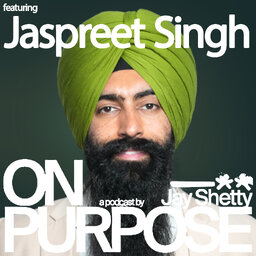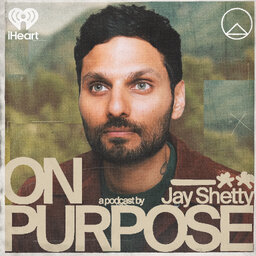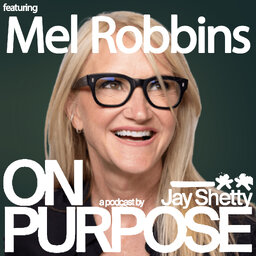#1 Daily Habit to Transform Your Life & How to Set Intentions That Actually Work
Today, I’m going to share with you my interview with Vishen Lakhiani of the Mindvalley Podcast. It’s a very insightful conversation because we talk about my life as a monk & why refining your intentions for the day can help you improve your life.
I also talk about spirituality and how you can help someone to bring them in a transformational journey. Forcing someone to change their beliefs will be difficult especially if it’s already what they’ve believed for a long time, but with patience you can surely succeed.
Key Takeaways:
- 00:00 Intro
- 02:32 Refining your intentions everyday
- 08:40 Creating in depth
- 11:55 Removing an identity attached to your ego
- 13:10 Jay’s tattoos
- 14:49 Spirituality is not separate from life
- 17:08 Meditation is an important part of the cloud
- 18:29 Relationships
- 20:37 Starting a spiritual learning
- 23:53 Those who love peace need to learn to organize themselves
- 26:52 Bringing someone else into a transformational journey
- 32:29 What’s next?
Like this show? Please leave us a review here - even one sentence helps! Post a screenshot of you listening on Instagram & tag us so we can thank you personally!
Do you want to meditate daily with me? Go to go.calm.com/onpurpose to get 40% off a Calm Premium Membership. Experience the Daily Jay. Only on Calm
Want to be a Jay Shetty Certified Life Coach? Get the Digital Guide and Workbook from Jay Shetty
https://jayshettypurpose.com/fb-getting-started-as-a-life-coach-podcast/
In 1 playlist(s)
On Purpose with Jay Shetty
My name is Jay Shetty, and my purpose is to make wisdom go viral. I’m fortunate to have fascinating …Social links
Follow podcast
Recent clips

Jaspreet Singh: Why Most People Stay Broke (Follow THIS 7-Step System to FINALLY Stop Living Paycheck-to-Paycheck!)
1:19:03

Feel Stuck, Confused, or Behind? Use THIS Blueprint and Completely Transform Your Life in ONE Year!
23:16

MEL ROBBINS: How to Stop People-Pleasing Without Feeling Guilty (Follow THIS Simple Rule to Set Boundaries and Stop Putting Yourself Last!)
1:15:47
 On Purpose with Jay Shetty
On Purpose with Jay Shetty